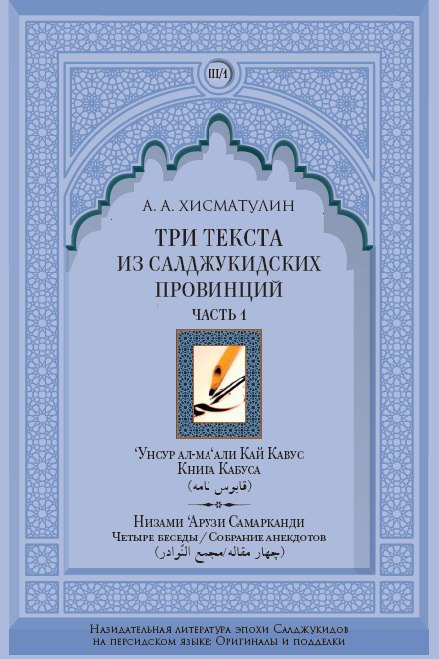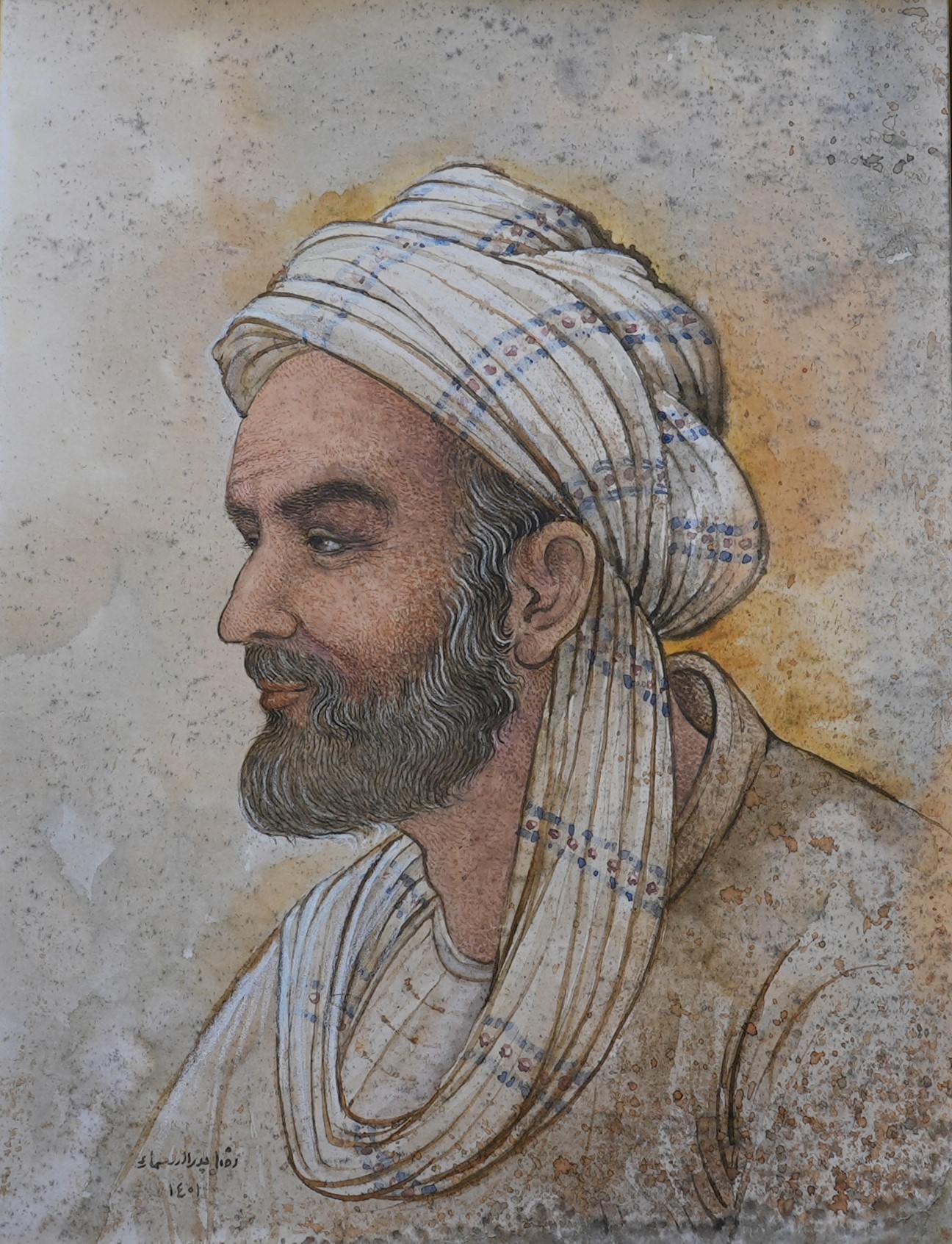A new book from the series “Edifying literature of the Seljuk era: original and fake texts” was issued by “Sadra” Publishing House with the help of Ibn Sina Foundation in collaboration with the Institute of Oriental Manuscripts of the Russian Academy of Sciences and “Petersburgh Oriental Studies” Publishing House. The full title of the work by a Candidate of historical sciences, a senior research scholar of the Institute of Oriental Manuscripts of the Russian Academy of Sciences Alexei Aleksandrovich Hismatulin is “Three texts from Seljuk provinces. Part one. ‘Unsur al-Ma’alu Kai Kawous. Kabous-nameh (“The Book of Kawous”); Nizami ‘Aruzi Samarkandi. Chahar Maqaleh / Majma’ al-Nawadir (“Four Conversations”/ “The Collection of Jokes”)”.
The final book of the series consists of two separate parts. The first part begins from Afterword to the series that contains the results of researching of medieval fake texts and the main methods of it’s identification. Then it contains a new Russian translation of the texts created on the outskirts of the Seljuk Empire in the V-VI/XI-XII Centuries, and also some texts that are well known for a Russian speaking reader from the middle of the previous century, such as Kabous-nameh and Chahar Maqaleh/Majma’ al-Nawadir.
The translation of each part is provided by commentaries and analytical foreword. It is based on Iranian critical editions that include reliable manuscripts inaccessible in the middle of the 20th century, when the first Russian translations of these works were being prepared. The translations are provided by Persian Original texts prepared on the basis of critical editions. It gives a posdibility for specialists to propose their own variants of translation.
The series “Edifying literature of the Seljuk era: original and fake texts” includes earlier published works such as “Writings of Imam al-Ghazali” (2017) and “Amir Mu‘izzi Nishapouri. Siyasat-nameh/Sitar al-Mulouk (“The Book of Governing/Biographies of Governors”): a fake text ascribed to Nizam al-Mulk” (2020). Both works by A.A. Hismatulin awon an award at the XII Farabi International Festival in 2021.



